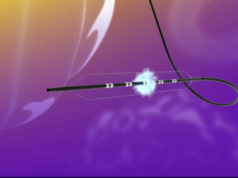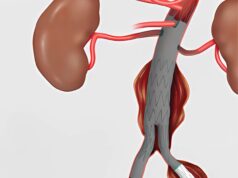The British Vascular Foundation and the London Vascular Debating Group held a joint meeting this June on what is increasingly becoming a contentious subject in vascular surgery across the continent. The meeting entitled Surgeons in the Dock and organised by its Secretary John Wolfe, covered issues from patient safety, appraisal, revalidation and suspension of surgeons to protection from the law. It also addressed low performance and the rapid response teams, culminating in a debate on whether or not published league tables on surgeons’ performances, currently in use in the US, were the way forward.
Mr Wolfe kicked off the meeting with an overview of the past, present and future of patient care and the medical profession. The lack of respect for the goals of the medical profession is what Wolfe found “the most saddening”of all. The future will see more focused training and an improved professional lifestyle but Wolfe was concerned that in order for workloads to decrease, double the numbers would have to be recruited to serve the 48 hour week. “If there is not enough time, then all the training plans go through the floor,”he said. Teamwork and communication is the answer, with everyone knowing their role, no one interfering with it and all depending on one another to fulfil it. He urged surgeons to be proactive not reactive and encouraged a culture of self-reliance, moving towards the European system with the focus on an holistic care of the patient.
There was a talk on the suspension of younger surgeons beginning with statistics that showed that more surgeons are suspended than any other medical speciality. Although suspension is classified by the Health Service Guidelines (HSG) as “a neutral act”which is “non disciplinary, it is obviously better to prevent this occurrence. It was argued that this is achievable with a combination of simple good manners and understanding in dealing with patients and teamwork, mentoring and appraisal from colleagues.
There were complex and technical presentations at the meeting by Averil Mansfield, Tony Giddings and Sir Barry Jackson on the relative benefits of the workings of appraisal, assessment and revalidation. All speakers commented on the change in public perception of the medical profession during their careers. In the wake of cases such as the Bristol heart babies, the performance of the medical profession had been under intense public scrutiny. Patients now see that quality service is an expected right. However, conditions for surgeons are deteriorating, with pressure coming from lack of beds, inadequate staffing and the increased complexity of surgical procedures. Mansfield felt that the public would feel reassured by appraisal though was less convinced by revalidation due to the cost of implementation and the lack of data to prove its worth.
A quite outstanding talk on surgical self-assessment was given by Mr Marc de Leval, a paediatric surgeon working at Great Ormand Street Children’s Hospital. Faced with an unexplained rise in mortality for a surgical procedure he had done successfully on many previous occasions, he chose to stop and retrain. Never being quite sure what had caused this rise in deaths, de Leval began working with Professor of Psychology, Jim Reason, a specialist in the ‘human error factor’. The conclusion of their report was that the minor events – what de Leval called the “near misses”- increased the incidence of a major event happening. Minor events are insidious; people do not compensate for them or do much to prevent them, as they do for major events. De Leval concluded his presentation by saying that surgeons needed to be mentally prepared for retraining if they found that their surgical mortality rates were increasing. If necessary, a surgeon should watch and then copy exactly the procedure done by another surgeon who is good at it. This is what he had done and it had given him the confidence to return to the operating table. The meeting was not just of interest to British surgeons. Professor William Paaske attended as he is currently working on medico-legal issues in the Danish health system. “It was really superb for me to attend.” he said, “I took extensive notes and thoroughly enjoyed the very English debate that ended the sessions. This was entitled “Published League Tables of Surgeons are Necessary for Public Confidence. Bruce Campbell opened in support of the motion and expressed the view that the basis for league tables has already been established with the Dr. Foster Registry. However, Campbell stressed that the accuracy of this assessment can only be achieved with the co-operation of the surgeons themselves and, unless everyone is fully involved with the process, the data presented to the public about surgeons will be inaccurate. Campbell reassured the audience: “We have nothing to fear and an open and accountable approach is essential for public confidence.
Mr Tony Giddings countered these arguments by pointing out the problems of a ‘blame culture’ which could unnecessarily brand a surgeon, particularly when the results of any individual practice might fluctuate for reasons beyond the control of the surgeon him or herself.
The thorny issue of surgery and the law is not a subject that vascular and endovascular surgeons can fail to address. Not only do patients expect, as Averil Mansfield stated, “nothing but perfection, they are also becoming more and more knowledgeable about their condition, due in part to their use of the Internet. This trend was a subject raised by Roger Greenhalgh in the June editorial of Vascular News. He warned surgeons undertaking procedures such as open or endovascular control of carotid stenoses or aortic aneurysm to be ready to defend their decisions to the lawyers of this highly informed public. As lawyers become more and more involved in all matters surgical, it will be interesting to see how hospitals deal with this, especially as the sums demanded by lawyers increase. Will we one day have lawyers working in hospitals whose job it will be to tell the doctors and surgeons employed by those hospitals, what they can and cannot do; which patients to treat and how they should treat them?












